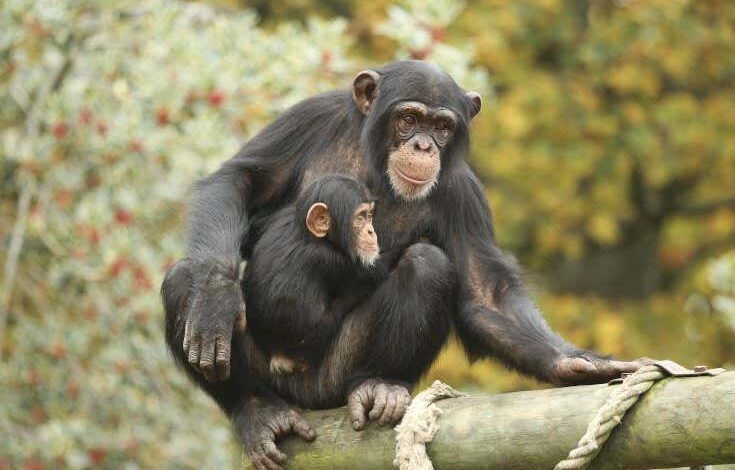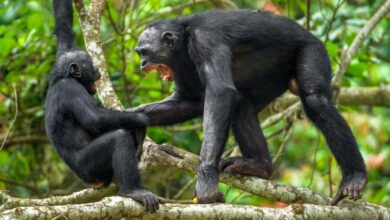
[ad_1]

Chimpanzees in zoos were shown photos of old group members to test their memory
Johns Hopkins University
Bonobos and chimpanzees seem to recognise photos of former group members – even animals they haven’t seen for over 20 years. This means that these apes have the longest social memory ever recorded in any animal besides humans.
Great apes, such as gorillas, chimpanzees and bonobos, are known to have impressive memories – for example, some chimps can remember the exact location of specific fruit trees in a forest, and anticipate what happens next in a film they have viewed before. Researchers have also seen hints that great apes remember individuals for a long time.
“When we go back to ape populations that we’ve worked with in the past, we noticed that they seem to recognise and remember us,” says Laura Lewis at the University of California, Berkeley.
To investigate how long this social memory lasts in apes, Lewis and her colleagues put 12 bonobos and 15 chimps, living in zoos in the UK, Japan and Belgium, to the test.
For each animal, the team flashed side-by-side photos of two different apes on a screen for 3 seconds. One of the photos was of an ape that they had lived with at least one year ago and the other was a stranger.
Using eye-tracking technology, the team found that all the participants would look at the images of former group members around a quarter of second longer on average than they did for the ones of strangers. For former colleagues that they had positive relationships with, as described by zookeepers, they would linger on their photos even longer.
The finding indicates that these apes remember acquaintances even after a lengthy time apart. “It’s not so different from walking down the streets in a major city, unexpectedly encountering someone you went to school with, and you do that double take,” says team member Christopher Krupenye at Johns Hopkins University in Maryland.
In the most extreme case, a bonobo called Louise seemed to recognise her sister Loretta and nephew Erin after more than 26 years of separation.
“That’s the longest long-term social memory ever recorded in a non-human animal,” says Lewis.
Topics:
Source link




